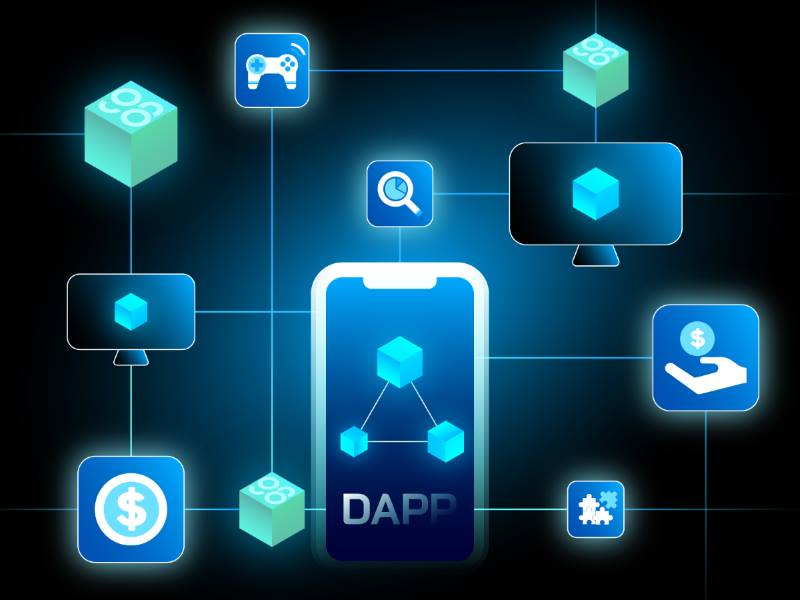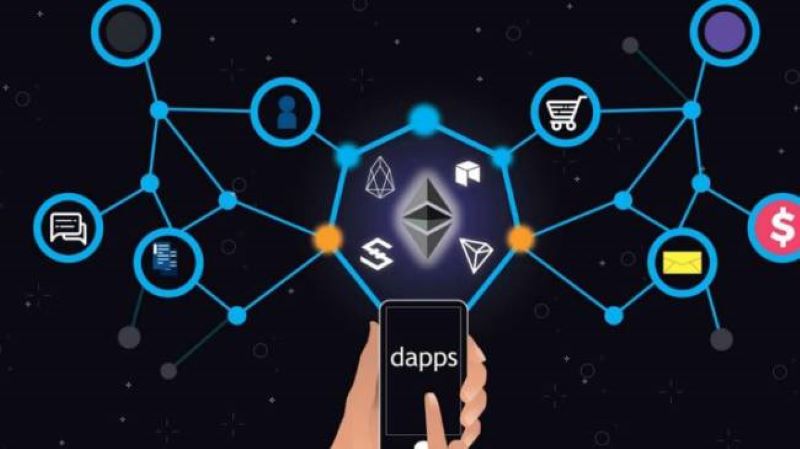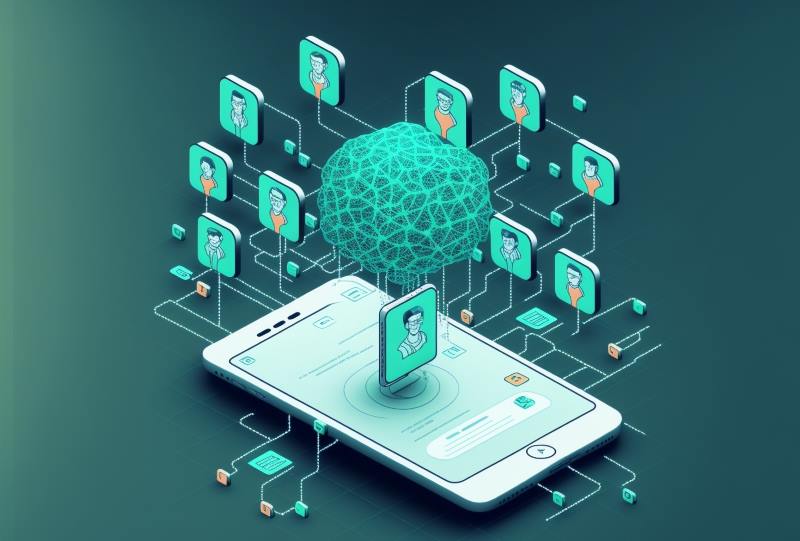Are you ready to explore the future of u2u decentralized applications? dApps are transforming how we interact with the digital world, offering enhanced security, transparency, and user control. But what exactly are dApps, and how do they work? Join us as we delve into the world of decentralized applications, uncovering their unique features, benefits, and potential to revolutionize various industries.
What is Decentralized applications?
A Decentralized applications or dApp is a software application that operates on a decentralized network, often utilizing blockchain technology. Unlike traditional apps, which run on centralized servers controlled by a single entity, dApps leverage a distributed network of computers, making them more resistant to censorship and single points of failure. They typically incorporate smart contracts, self-executing agreements with predefined rules, to automate processes and eliminate the need for intermediaries.

dApps interact with users through familiar interfaces like web browsers or specialized software, but their underlying architecture and technology distinguish them from centralized counterparts. This decentralized nature offers unique advantages in terms of trust, data ownership, and control, making dApps a promising avenue for innovation in various sectors.
Features of Dapp
Open-Source Nature
One of the core features of decentralized applications (dApps) is their open-source nature. The source code of dApps is made publicly available, meaning anyone can inspect, use, replicate, or modify it. This transparency fosters innovation, as developers can contribute to improving the application or build upon it for their own purposes.
Furthermore, no single entity controls the majority of the tokens within the dApp, which promotes a fair, community-driven environment. The decentralized nature also extends to governance—users of the dApp can propose changes, vote on updates, and have a say in the evolution of the project. This gives users a sense of ownership and involvement, unlike centralized applications controlled by a single organization.
Decentralization and Cryptographic Security
Security and decentralization are foundational to the design of dApps. Data within a dApp is stored cryptographically on a public blockchain that is decentralized and maintained by a network of nodes.
This approach ensures that data cannot be altered or tampered with, as each node holds a copy of the blockchain, making it difficult for any single party to manipulate the system. Decentralization also removes the reliance on a central authority, providing increased resilience against attacks and downtime. Users’ data and transactions are protected by cryptography, ensuring that sensitive information remains secure and private, and minimizing the risk of unauthorized access.
Tokenized System
dApps typically rely on a tokenized system for access and governance. Users interact with dApps using cryptographic tokens, which can be native tokens generated by the dApp itself or established cryptocurrencies like Ether (ETH) for Ethereum-based applications.
These tokens serve multiple purposes: they act as the medium of exchange within the platform, incentivize contributors, and allow users to participate in the governance process. In many cases, tokens are used to reward miners, validators, or stakeholders who help maintain the blockchain’s integrity through consensus mechanisms like Proof of Work (PoW) or Proof of Stake (PoS).
The tokenized system creates an economy that drives the success of the dApp by rewarding active participants and ensuring fair distribution of power and resources within the network.
How does a dApp work?
Decentralized applications (dApps) operate on a peer-to-peer network, setting them apart from traditional apps that rely on centralized servers. They are open-source, meaning their code is publicly available for scrutiny and modification. Changes to the dApp require consensus from a majority of users, ensuring a democratic decision-making process. Data is stored securely across a decentralized network of blocks, enhancing resilience and protecting against single points of failure.

Additionally, dApps are often built on blockchain platforms and utilize cryptographic tokens for various functions within their ecosystem. While they share similarities with traditional apps in terms of user interface, their back-end code operates on a decentralized network, preventing control by any single authority. Smart contracts, self-executing code deployed on the blockchain, automate processes and enforce rules, ensuring transparency and trustlessness.
Overall, dApps represent a paradigm shift in how we build and interact with digital services, offering greater transparency, security, and user empowerment through their decentralized nature.
What are advantages of dApps?
Decentralized applications (dApps) offer several advantages over traditional centralized applications due to their unique decentralized architecture. Unlike web apps vulnerable to single points of failure and data breaches, dApps operate on distributed networks, enhancing their security and resilience.
Even if parts of the network malfunction, dApps can continue to function with minimal downtime thanks to their peer-to-peer (P2P) network design.
Additionally, dApps prioritize user control over personal information. Users can often remain anonymous while interacting with the platform through a crypto wallet, eliminating the need for companies to store and potentially exploit user data.
Developers also benefit from the streamlined integration of cryptocurrencies into dApps through smart contracts. This eliminates the need for third-party payment providers, making transactions more efficient and secure.
Overall, the decentralized nature of dApps provides a compelling alternative to traditional applications, offering enhanced security, user control, and streamlined functionality.
Top Security Tips for DApp Users
Protecting yourself in the cryptocurrency and dApp space requires vigilance and caution. Verify the legitimacy and reputation of any dApp before use by checking reputable databases like DAppRadar.com or DApp.com, and examining on-chain data for any suspicious activity.
Additionally, review the dApp creators’ communication channels for transparency and credibility, and prioritize dApps with audited code by qualified smart contract auditors.
When accessing Web 3.0 applications on public Wi-Fi, utilize a VPN to encrypt your internet traffic and safeguard your personal information from potential hackers.
Exercise extreme caution with URLs, as cybercriminals often create fake dApps with similar URLs to deceive users. Always double-check the website or dApp address before connecting your wallet to avoid phishing scams and potential loss of assets.
The Future of U2U decentralized applications
Decentralized applications (dApps) are a rapidly growing and evolving technology in the blockchain space, poised to revolutionize various industries. Their increasing popularity stems from the widespread adoption of blockchain solutions across different sectors.
Looking ahead, the dApp ecosystem is expected to experience significant transformations. The prevalence of stablecoins is predicted to rise, offering a solution to the volatility issue that has plagued many cryptocurrencies. As stablecoins gain traction, developers are likely to create more dApps centered around them.
Furthermore, innovative price-stabilizing mechanisms are anticipated to emerge, not only for stablecoins but also for other cryptocurrencies. This will be crucial for broader adoption as price stability is a key concern for investors.
Overall, the continued growth and evolution of dApps promise to reshape the blockchain landscape, offering numerous benefits and lucrative opportunities for both developers and investors. Their integration into various industries is expected to accelerate, further solidifying their role as an integral part of the digital economy.

In conclusion, dApps, with their unique characteristics and potential for disruption, are poised to play a significant role in shaping the future of technology. As the world becomes increasingly interconnected and digital, the demand for decentralized and transparent applications will continue to grow. Whether you’re a developer, investor, or simply curious about this revolutionary technology, understanding dApps is crucial for navigating the evolving digital landscape.
With their potential to transform industries, empower users, and create new economic models, dApps represent a pivotal moment in the evolution of the internet. To stay informed about the latest developments and opportunities in this exciting space, follow Blockchain Global Network for the latest news and insights on blockchain technology and dApps.

RELATED POSTS
The Unique Characteristics of Blockchain Technology – A Guide to Its Power and Potential
The unique characteristics of blockchain...
Kelp DAO Airdrop – How to Earn Money from Kelp Miles
The Kelp Miles program within...
Can You Rewrite Blockchain History? Exploring Data Immutability
Can you change data on...
Crypto news predictions – Key Trends in the future
Crypto news predictions are essential...
Exploring the Growth of the Blockchain Technology Market in 2024
The blockchain technology market is...
Pi Network Officially Lists on OKX Exchange on February 20: New Opportunities for Pi Holders?
Pi Network Officially Lists on...
In-Depth Analysis of ERC20 Airdrop Tools
Looking for the best ERC20...
What are the best crypto wallets?
Wondering what are the best...
What is Airdrop in the Crypto World? Exploring Its Benefits and Risks
Curious about What is airdrop...
Rings Protocol Airdrop: How to Maximize Your Chances for Sonic Gems
Rings Protocol, a yield-bearing stablecoin...
BoxBet Airdrop – Your Ultimate Guide to Earning BXBT Tokens
The BoxBet Airdrop is making...
Converting 900 MATIC to USD: Current Rates and Simple Calculations
Curious about the current value...
Crypto Crashing and 3 important investment implications
Crypto Crashing has shaken the...
BlackRock and Citadel New Stock Exchange – What Awaits in the Future?
The BlackRock and Citadel New...
Tellor (TRB Crypto): A secure oracle solution for DeFi
In the blockchain world, accessing...
Blockchain and AI Hub complex in Hanoi – SSI Digital Ventures Commits to Supporting 200 Million USD
SSI Digital Ventures has launched...